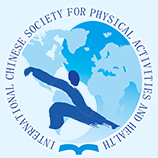Document Type
Abstract
Publication Date
12-1-2024
Abstract
Background/Purpose: The influence of cognitive style on decision-making in sports has always been a hot research direction in sports psychology. As the law enforcers in the stadium, the individual cognitive style of the umpire in the penalty will also affect the results of a game to an extent. This paper studied the accuracy of on-the-spot decision-making judgment of tennis umpires classified by field dependent-field independent cognitive style and provided a new idea and scientific method for the selection and cultivation of tennis umpires.
Methods/Design: In this experiment, literature method, experimental method, mathematical statistics, logical analysis method and other related research methods were used. In the experimental method, a total of 68 tennis umpires of three, two, one and national level in Zhejiang province were selected as research objects. Their field-dependent-field-independent cognitive styles were distinguished by Rod-Frame tests, using video experiments to obtain the experimental results.
Results: As the level of umpires increases, the proportion of umpires with field-independent cognitive style increases, and the proportion of umpires with field-dependent cognitive style decreases. There is no significant difference in video experiment between umpires of the same level and different ages. Short-term training (one month) can improve the accuracy of umpires' judgment, but the improvement of first-level and national-level umpires is not obvious, and the improvement of second-level and third-level umpires is significant. There was no significant correlation between field cognitive style and video experiment results in the second and third-level umpires. In the first-level and national umpires, there is a significant correlation between field cognitive style and video experiment results. The correct rate of video experiment of field-independent umpires is significantly higher than that of field-dependent umpires.
Conclusion: Level and cognitive style are important factors affecting the accuracy of umpire judgment. In low-level umpires, training is an important means to enhance the level of decision-making. Among high-level umpires, field-independent umpires have more potential and development space than field-dependent umpires.
DOI
https://doi.org/10.18122/ijpah.3.3.105.boisestate
Recommended Citation
Cai, Kairui and He, Wensheng
(2024)
"A105: Correlation Analysis Between Cognitive Style and Judgment Accuracy of Tennis Umpires in Zhejiang Province,"
International Journal of Physical Activity and Health: Vol. 3:
Iss.
3, Article 105.
DOI: https://doi.org/10.18122/ijpah.3.3.105.boisestate
Available at:
https://scholarworks.boisestate.edu/ijpah/vol3/iss3/105
Included in
Exercise Science Commons, Health and Physical Education Commons, Public Health Commons, Sports Studies Commons



